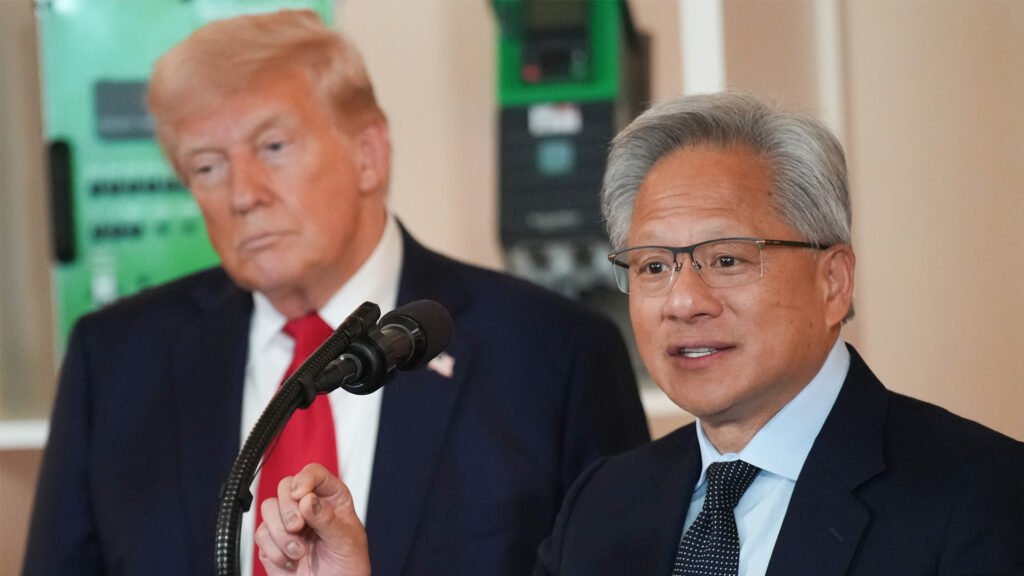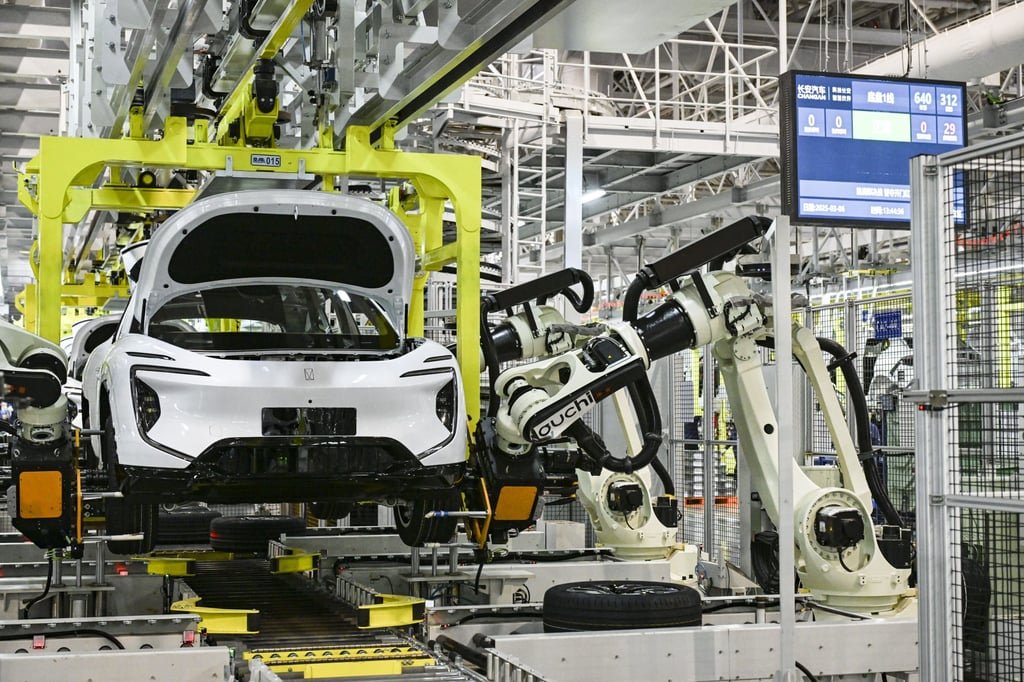Trump administration adds a 15% revenue share twist
Under a new and unprecedented agreement, Nvidia and rival AMD will pay the U.S. government 15% of their China AI chip sale revenues. This condition was attached to their export licenses for Nvidia’s H20 and AMD’s MI308 processors. The Trump administration framed the move as a way to protect U.S. interests while allowing controlled access to Chinese buyers.
How the stock market reacted to the news
Investor reaction was swift. Nvidia shares dipped between 1% and 1.8% in early trading after the announcement, while AMD fell about 2%–3%. Analysts pointed out that this revenue cut could reduce Nvidia’s gross margins by 5 to 15 percentage points, potentially shaving billions off its future profits.
Some investors, however, see the restored China sales as a long-term win that could outweigh the short-term hit to earnings.
Why the deal is stirring debate among analysts
This agreement has raised big questions in both business and policy circles:

Live Events
- National security vs revenue: Experts like Geoff Gertz of the Center for New American Security question whether this is about security or simply a financial windfall for the government.
- Legal uncertainty: Critics argue the 15% cut acts like an export tax, which could be challenged in court.
- Business precedent: The deal could set the stage for future trade approvals tied to government revenue shares.
What experts think about Nvidia’s next move
Industry watchers are split. Some believe Nvidia’s stock could see a 20% surge in the coming months if Chinese demand comes roaring back. Others warn that heavy government cuts, plus rising competition from China’s domestic chipmakers, could limit upside gains.
What investors should watch going forward
- Earnings impact: How much the 15% cut will actually dent Nvidia’s bottom line will become clearer in the next quarterly results.
- China market dynamics: If Chinese buyers accelerate orders, Nvidia could still post strong sales despite the revenue skim.
- Policy risk: If this “export fee” approach expands to other sectors, it could change the way U.S. tech firms operate globally.
Nvidia’s return to the China AI chip market is a big win—but it comes with an expensive price tag. For investors, the next few months will be a balancing act between booming demand and slimmer margins. Whether shares surge or slip may depend less on the deal itself and more on how fast Nvidia can turn restored access into profitable growth.
FAQs:
Q1: Why did Nvidia agree to the 15% revenue cut on China chip sales?
To regain export licenses for its H20 AI chips to China under the Trump administration’s new trade terms.
Q2: Will Nvidia stock rise after the China chip export deal?
Analysts are split — strong China sales could boost the stock, but the 15% cut may limit gains.





